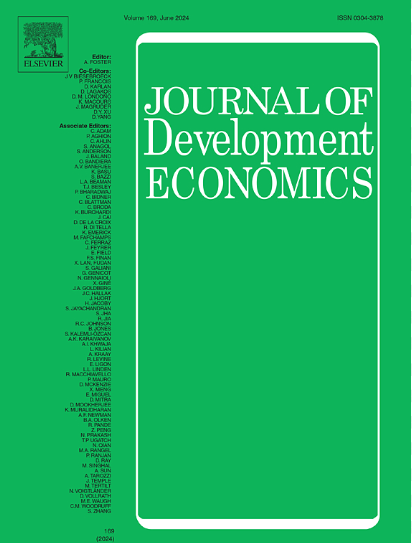Does perceived labor market competition increase prejudice between refugees and their local hosts? Evidence from Uganda and Ethiopia
IF 5.1
1区 经济学
Q1 ECONOMICS
引用次数: 0
Abstract
We study whether perceptions of labor market competition negatively influence out-group attitudes between refugees and their local hosts using a survey vignette experiment conducted in urban and rural Ethiopia and Uganda. Our vignette consists of a short story about a fictional job-seeker in which we randomize the citizenship (refugee/national) and occupation (same as/different from respondent). Our estimates suggest that host attitudes are significantly more negative when the vignette character is a refugee in the same occupation. Such prejudice against the out-group is not confirmed among refugees. Exploring the context-dependency of our results, evidence suggests that negative attitudes towards refugees that are tied to perceived labor market competition largely manifest in contexts of limited refugee worker presence. Hence, perceived labor market competition contributes to prejudicial attitudes, but results suggest that these perceived threats do not necessarily coincide with experienced labor market competition between refugees and their hosts. Additional heterogeneity analysis based on prior contact and ethno-linguistic proximity provides suggestive evidence that cross-group interactions reduce the salience of perceived labor market competition as a driver of out-group prejudice in refugee settings.
感知到的劳动力市场竞争是否会增加难民与当地收容者之间的偏见?乌干达和埃塞俄比亚的证据
本文章由计算机程序翻译,如有差异,请以英文原文为准。
求助全文
约1分钟内获得全文
求助全文
来源期刊

Journal of Development Economics
ECONOMICS-
CiteScore
8.30
自引率
4.00%
发文量
126
审稿时长
72 days
期刊介绍:
The Journal of Development Economics publishes papers relating to all aspects of economic development - from immediate policy concerns to structural problems of underdevelopment. The emphasis is on quantitative or analytical work, which is relevant as well as intellectually stimulating.
 求助内容:
求助内容: 应助结果提醒方式:
应助结果提醒方式:


